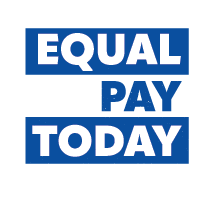Legislation Summaries
The Salary Transparency Act (H.R.1599)
Background:
Representative Eleanor Holmes Norton (D-DC) introduced H.R.1599, the “Salary Transparency Act,” on March 14, 2023.
The bill has been referred to the House Committee on Education and the Workforce.
To cosponsor, please contact Rep. Norton’s office.
Talking Points:
Salary Transparency is a tool to close the wage gap and combat bias:
Despite the existence of federal and state equal pay laws, the gender wage gap persists and is especially harmful for women of color.
The Salary Transparency Act will help close the wage gap, ensuring greater economic security for women and their families.
Increasing pay transparency, by providing more public information about job pay ranges, is a critical component to closing the wage gap, particularly at the hiring stage. Research shows that when job applicants have more information about salary ranges that are already set for jobs, gender differences in negotiation outcomes diminish, helping to equalize opportunities for people of different genders at the bargaining table.
Moreover, when employers must set pay ranges that are tied to the duties of a job, it helps reduce subjectivity and bias in the process of setting wages.
The much narrower wage gap in the public sector, where governmental agencies typically have transparent and public pay structures, is further evidence that greater salary range transparency helps reduce wage disparities.
Posting salary ranges is good for business:
Providing salary ranges for a position can help employers more efficiently and accurately match with candidates whose salary requirements are aligned with what they can offer.
Research shows that pay transparency promotes employee loyalty and productivity and companies with strong pay equity policies tend to have less turnover, all of which is good for employers’ bottom line.
Provisions in the Bill
The Salary Transparency Act (H.R.1599) would advance pay transparency by requiring employers to:
Include the applicable wage or wage range in both internal and public job postings;
Disclose to applicants the wage or wage range for an employment opportunity prior to discussing compensation with the applicant and at any time upon their request;
Disclose to existing employees the wage or wage range for their position upon hire, at least annually thereafter, and at any time upon the employee’s request.
The Salary Transparency Act would also prohibit retaliation against an employee or job applicant for exercising their rights under the bill.
The Paycheck Fairness Act (H.R. 17/ S. 728)
Background:
On March 9, 2023, Representative Rosa DeLauro (D-CT-03) and Senator Patty Murray (D-WA), reintroduced the Paycheck Fairness Act, legislation that will combat wage discrimination and help close the wage gap by strengthening the Equal Pay Act of 1963 and ensuring women can challenge pay discrimination.
On June 21, 2023, the bill was reported without amendment favorably by the Senate HELP Committee.
Talking Points:
Pay discrimination is a persistent problem in our country that perpetuates poverty and robs women of what they've earned.
Sixty years after passage of the Equal Pay Act, the wage gap persists, with dire impacts on women and families. Women working full-time, year-round are typically paid only 84 cents for every dollar paid to men. When we compare the earnings of all women who worked with the earnings of all men who worked—regardless of how many hours or weeks they worked—the pay gap is even worse: women are typically paid just 78 cents for every dollar paid to a man.
Women of color experience the most significant losses. When comparing all workers with earnings in 2022—regardless of how many hours or weeks they worked— Asian American, Native Hawaiian and Pacific Islander (AANHPI) women overall made 80 cents for every dollar paid to white, non-Hispanic men, Black women were paid 66 cents, Native women 55 cents, and Latinas just 52 cents to the dollar.
The Paycheck Fairness Act would update and strengthen the Equal Pay Act of 1963 to ensure that it provides robust protection against sex-based pay discrimination which will help close the wage gap and ensure greater economic security for women and their families.
Among its provisions, the Paycheck Fairness Act would:
Bar retaliation against workers who voluntarily discuss or disclose their wages
Close loopholes that have allowed employers to pay women less than men for the same work without any important business justification related to the job
Ensure women can receive the same robust remedies for sex-based pay discrimination that are currently available to those subjected to discrimination based on race and ethnicity
Prohibit employers from relying on salary history in determining future pay, so that pay discrimination does not follow women from job to job.
Provide much needed training and technical assistance, as well as data collection and research
